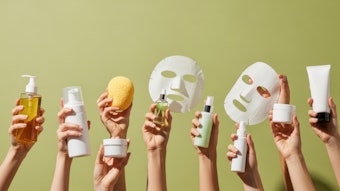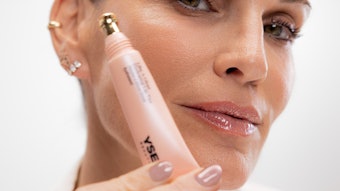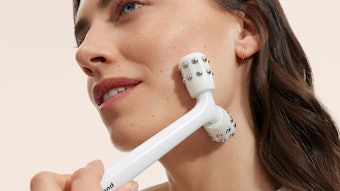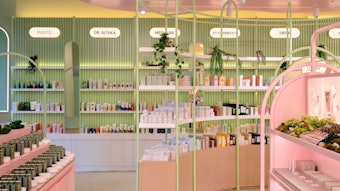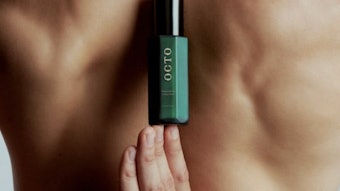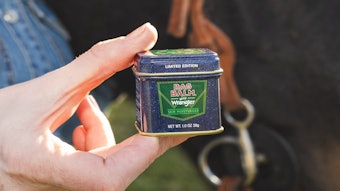As part of the Marketing Trends portion of the education program set to take place at the 2013 in-cosmetics, April 16–18 in Paris, In-Trend Ltd.’s managing director Emmanuelle Bassmann is going to discuss how the beauty industry is changing and progressing in the seminar “What’s on the Horizon for Beauty 2020.” Taking place in the Marketing Trends Theater on April 16 at 11:30 am, the presentation includes a forecast of how the beauty industry will address the world’s aging population, where technology is taking priority in beauty, product and ingredient innovations, and more, with input and examples from leading beauty brands and industry professionals.
Bassmann—a French native who has been a beauty analyst for the past 10 years, covering trends and products launched in the European and North American markets for skin care, body care, makeup, anti-aging and aesthetic medicine from New York, London and beyond—shared a preview of her presentation with GCI and shared some details about how she builds her trends reports and what attendees can expect to see ahead in beauty.
GCI: How do you identify beauty trends for as far out as 2020?
Emmanuelle Bassmann: To be as accurate as possible, I speak with various scientists from numerous disciplines, including photo biologists, physicists, biologists, chemists and medical doctors. I also interview entrepreneurs who are incubating radical new concepts; smaller companies often tend to be bolder in their creations as they need to stand out from more established businesses. For “What’s on the Horizon for Beauty 2020,” I've also talked to the R&D directors from 10 of the leading ingredient suppliers in the world about their vision for future trends in the beauty industry.
GCI: What are some of the shorter-term beauty industry trends versus some of the longer-term trends?
EB: I believe that short-term trends belong more to the makeup segment as it predominantly follows what’s popular in fashion. In skin care, the new trends are often far more innovative, which helps to make the whole market smarter—looking younger will never be unfashionable after all!. As a result, these are also products that the industry is more inclined to develop further, meaning that they have a far longer shelf life. I don’t consider BB creams as a fad for example, [but] rather a great multitasking product that will continue to grow in popularity.
GCI: What do you feel is the most surprising trend you've found?
EB: One of the most intriguing trends I became aware of recently is a new autologous cream made using our own stem cells (adipose tissue stem cells). One jar is very expensive, costing up to $3,000, and the science behind the product is still considered very controversial, but this is the type of concept that can open up completely new avenues to the industry. The name of the brand is U Autologous, and it’s directly inspired by regenerative medicine. It will be very interesting to see if the product becomes popular—it’s certainly a fascinating idea.
GCI: What other sectors do you feel most influence the beauty industry?
EB: Photobiology and the science of light are strong areas that are becoming more and more influential. I believe that the future of the beauty industry lies in harnessing the power of light. Imagine turning harmful radiation such as UVA and UVB into a healing light, enabling cosmetic doctors to rejuvenate a woman's face by using specific wavelengths of light with lasers and IPL (intense pulse light).
GCI: What advice would you give to beauty product developers in regard to new launches in the coming years?
EB: I would advise them to look at skin care in an innovative way. Our beauty regimes are not just skin deep any more, but now help us to relax in the evenings and wake up in the mornings as well. The connection between the mind and the body is key—the brain is constantly talking to skin cells through neurotransmitters. I also think there is an interesting gap in the market for a new generation of pigments that do more than just reflect back the light.
It’s important to remember that bespoke skin care is in its infancy and new cosmetic applications have the potential to be used outside of the beauty industry. The U.S Department of Defense is currently working on a new heat-resistant product using pigments capable of protecting soldiers from the heat of a bomb for example. In addition, sunscreens designed to work in harmony with different skin types based on melanin levels has the potential to be hugely successful. The potential in personalized cosmetics is huge and one of the main areas I expect to see companies invest in during the future.
All these trends will be discussed in more detail during the Marketing Trends seminar “What’s on the Horizon for Beauty 2020” at in-cosmetics, and learn more about other presentations and events happening at the show here.
